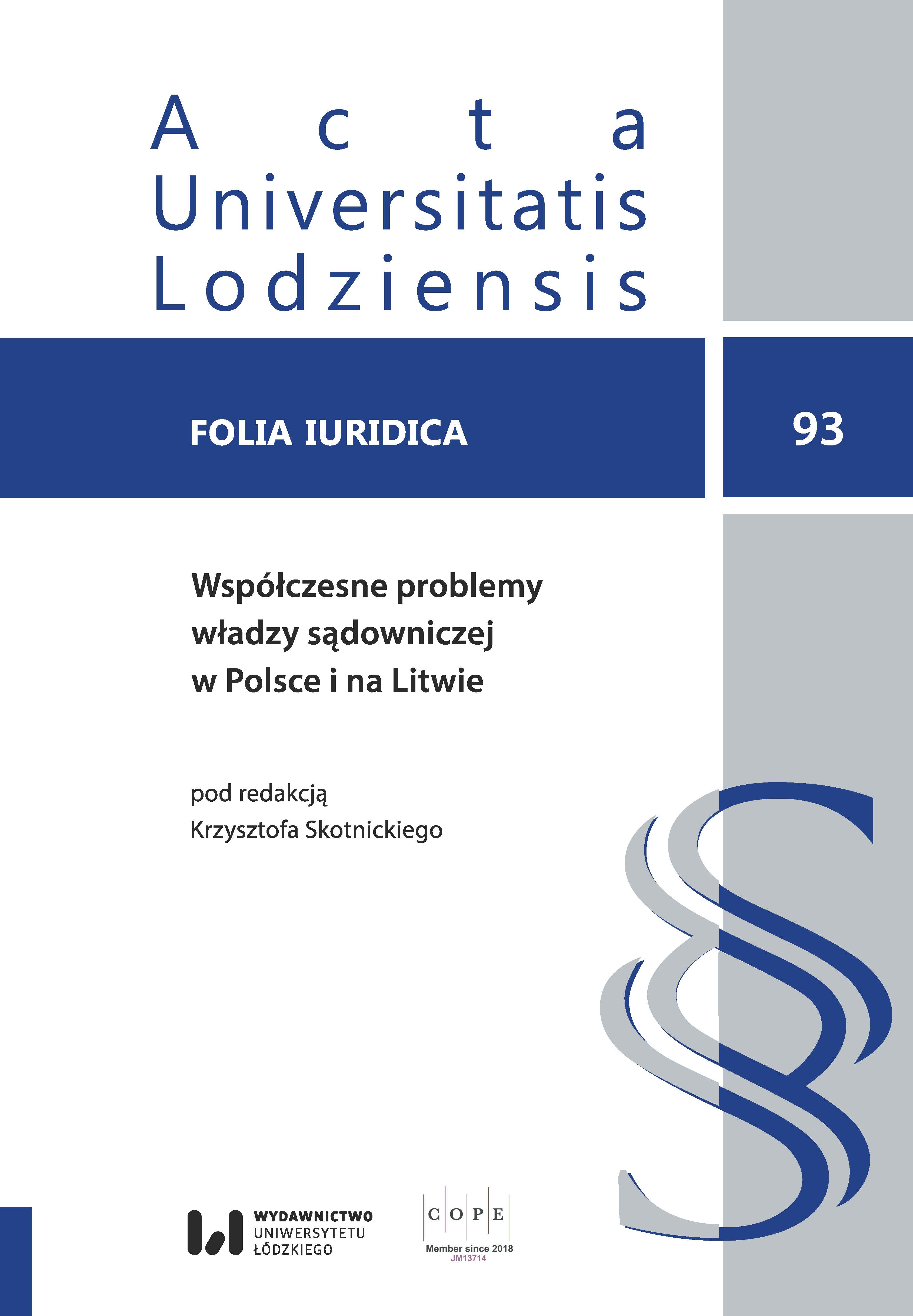Niezależność sądu i niezawisłość sędziego powołanego z udziałem KRS w kształcie ustalonym nowelizacją z 8 grudnia 2017 r. – przegląd orzecznictwa
Independence of the court and independence of the judge appointed with the participation of the National Council of the Judiciary in the form established by the amendment of 8th December 2017 – review of case law
Author(s): Anna Rakowska-TrelaSubject(s): Law, Constitution, Jurisprudence, Constitutional Law
Published by: Wydawnictwo Uniwersytetu Łódzkiego
Keywords: Constitution; judicial power; judge; Constitutional Tribunal; court; Euroropean Tribunal of Human Rights; Court of Justice of the European Union
Summary/Abstract: The separateness and independence of the judiciary as well as the independence of judges are necessary features that distinguish the power of judgment. Unfortunately, in recent years in Poland, the legislative and executive authorities have been trying to prevent the judiciary from controlling decisions of other organs in terms of their compliance with the constitution, and thus the proper, independent administration of justice. This is done through the adoption of unconstitutional laws that inhibit the courts and through the judgments of the Constitutional Tribunal, to the composition and functioning of which are raised many fundamental objections, confirming the unconstitutional line of the legislator. One of the most important issues on which the dispute between the political authority and the judiciary focuses are appointments of judges. The constitutionality of the appointment and performing the function by judges selected in the procedure with the participation of the National Council of the Judiciary, selected in accordance with the unconstitutional amendment to the Act on the National Council of the Judiciary of 8 December 2017, began to be questioned. This issue was the subject of numerous judgements: of common courts, of the Supreme Court, and the Constitutional Tribunal. In this study, the author tries to present the conclusions drawn from the decisions of the above-mentioned bodies and assess them from the point of view of the standards formulated in the case law of the Court of Justice of the EU and the European Court of Human Rights.
Journal: Acta Universitatis Lodziensis. Folia Iuridica
- Issue Year: 2020
- Issue No: 93
- Page Range: 75-87
- Page Count: 13
- Language: Polish

